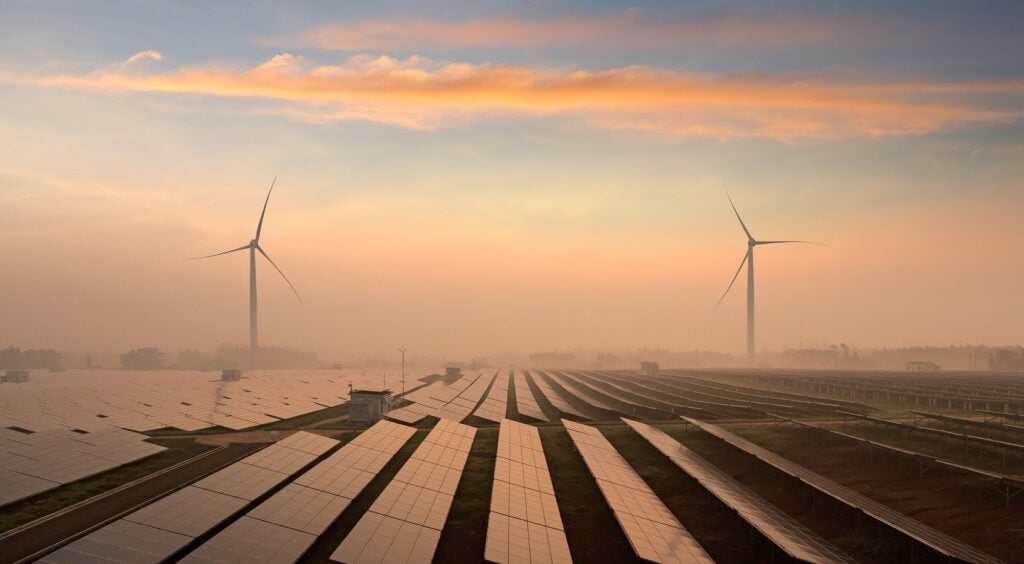The UK must strengthen domestic supply chains and ringfence the crisis of energy suppliers to deliver net zero, new research has found.
Cornwall Insight and law firm Womble Bond Dickinson analysed different markets including solar, wind, storage, low-carbon hydrogen and carbon capture utilisation and storage (CCUS), detailing what the government must do to achieve an affordable, sustainable and secure energy system and meet net zero by 2050.
While the two found that the government is in a good position to become a global leader in decarbonising the economy, there are a number of key problem areas that must be tackled in order to meet targets.
This includes strengthening domestic supply chains to boost economic growth and engaging with local communities to roll out renewable technologies.
The UK must also exploit first mover advantage for low-carbon hydrogen and CCUS by providing clarity on business-friendly models for new technologies, the companies said, therefore allowing industries and investors to make appropriate investment decisions.
Further areas the report outlined needed to be looked at included ringfencing the crisis of energy suppliers, stating that the government should support businesses struggling as a result of the energy crisis.
Indeed, last year 27 energy suppliers went bust while Bulb entered special administration, with some in the industry having since expressed concern that there is the potential for further failures later this year.
The government should demonstrate it recognises the complexity of investment and risk taking in the energy sector and help to rebuild confidence, the report from Cornwall Insight and Womble Bond Dickinson said.
It follows Cornwall Insight warning that investors must not be left behind in electricity market reforms earlier this year, stating this could risk inflated costs.
Today’s (8 June) report also stated that the consenting process for renewables should be streamlined, pointing to how while the simplification of the offshore wind planning processes in the Energy Security Strategy is an “important step”, onshore wind received less attention with “limited detail and less ambitious proposals”.
There is also a need for more holistic joined-up thinking to maximise the efficiency of the grid, particularly regarding offshore wind. And there should be more international coordination the report said, with a more coordinated policy between the US, UK and EU in particular would enable the countries to tackle current threats to energy supply.
Naomi Potter, lead research analyst at Cornwall Insight, said: “There are critical challenges facing the country as it pushes forward with its decarbonisation ambitions.
“These challenges are not insurmountable, however, and building on its strong foundations, the country can make significant strides towards environmental sustainability and energy independence, while unlocking investment opportunities.”






